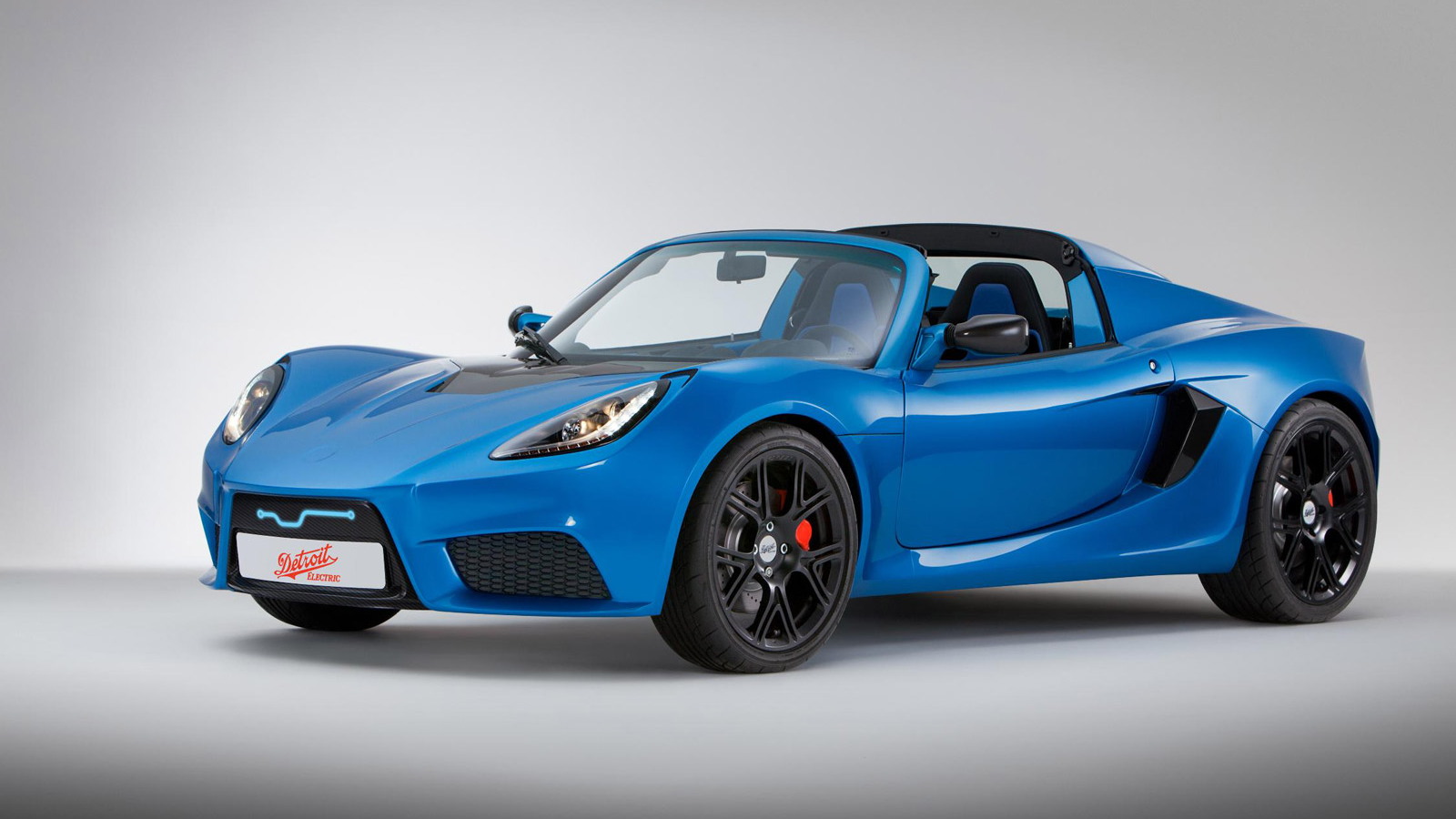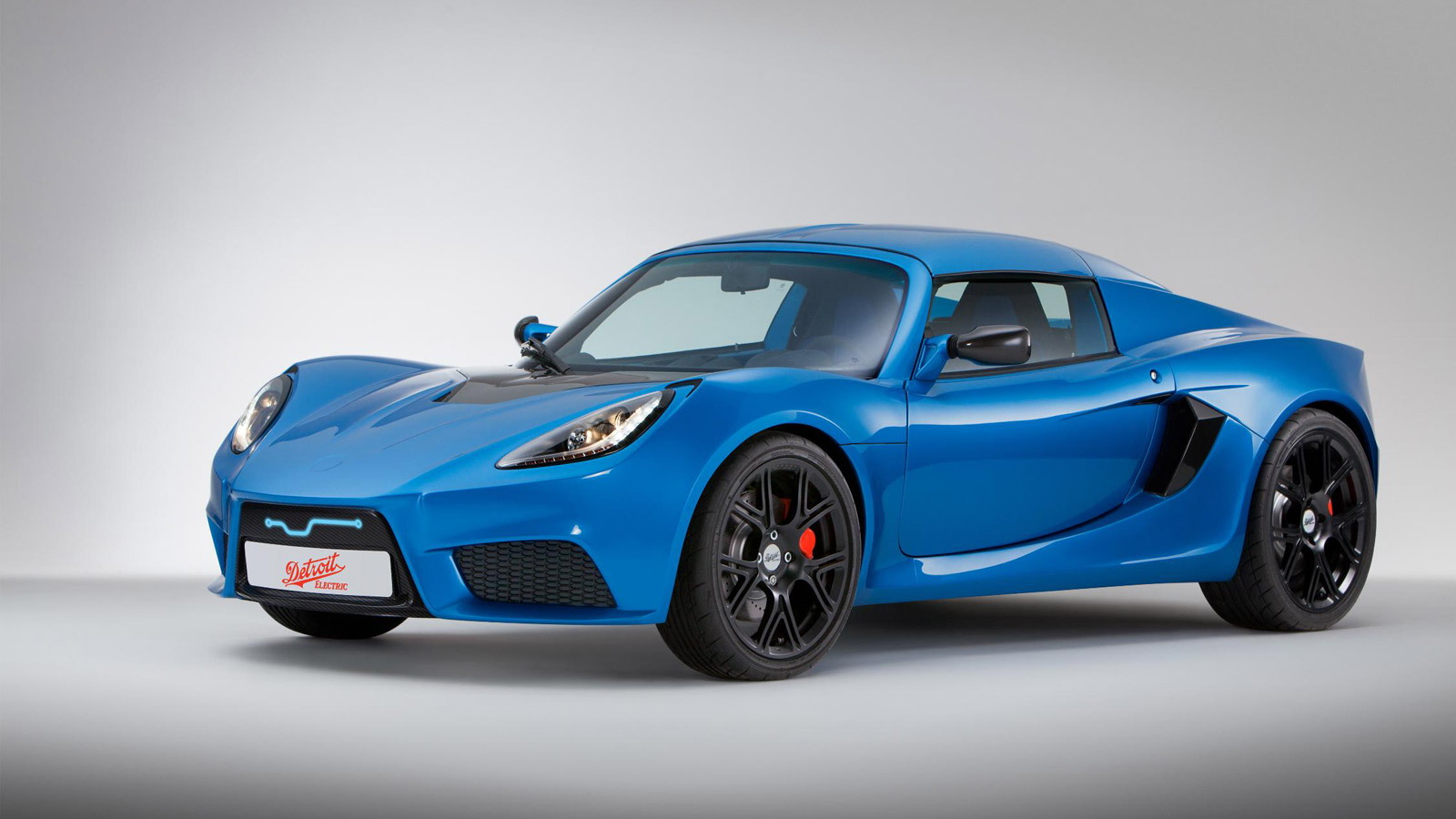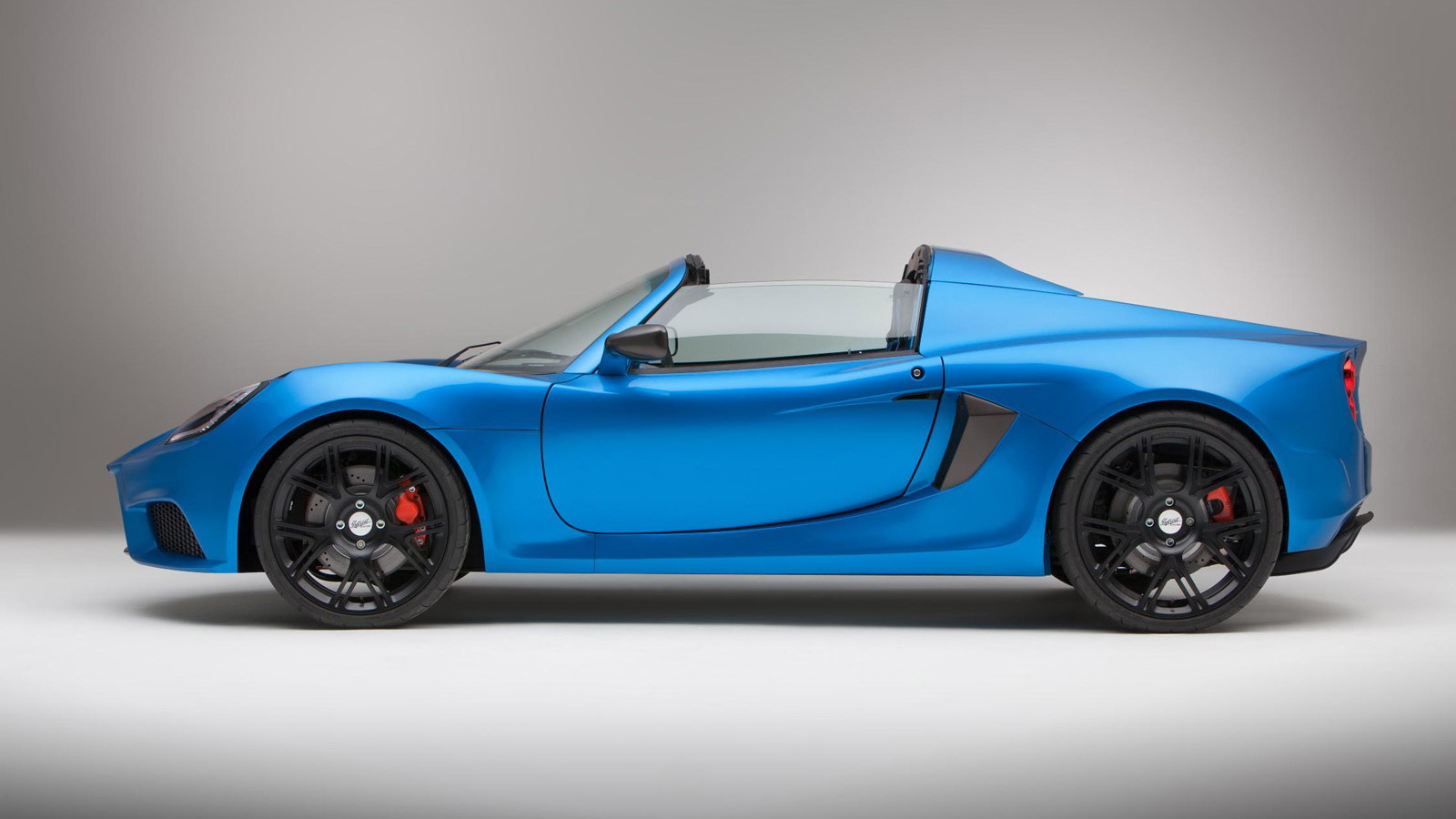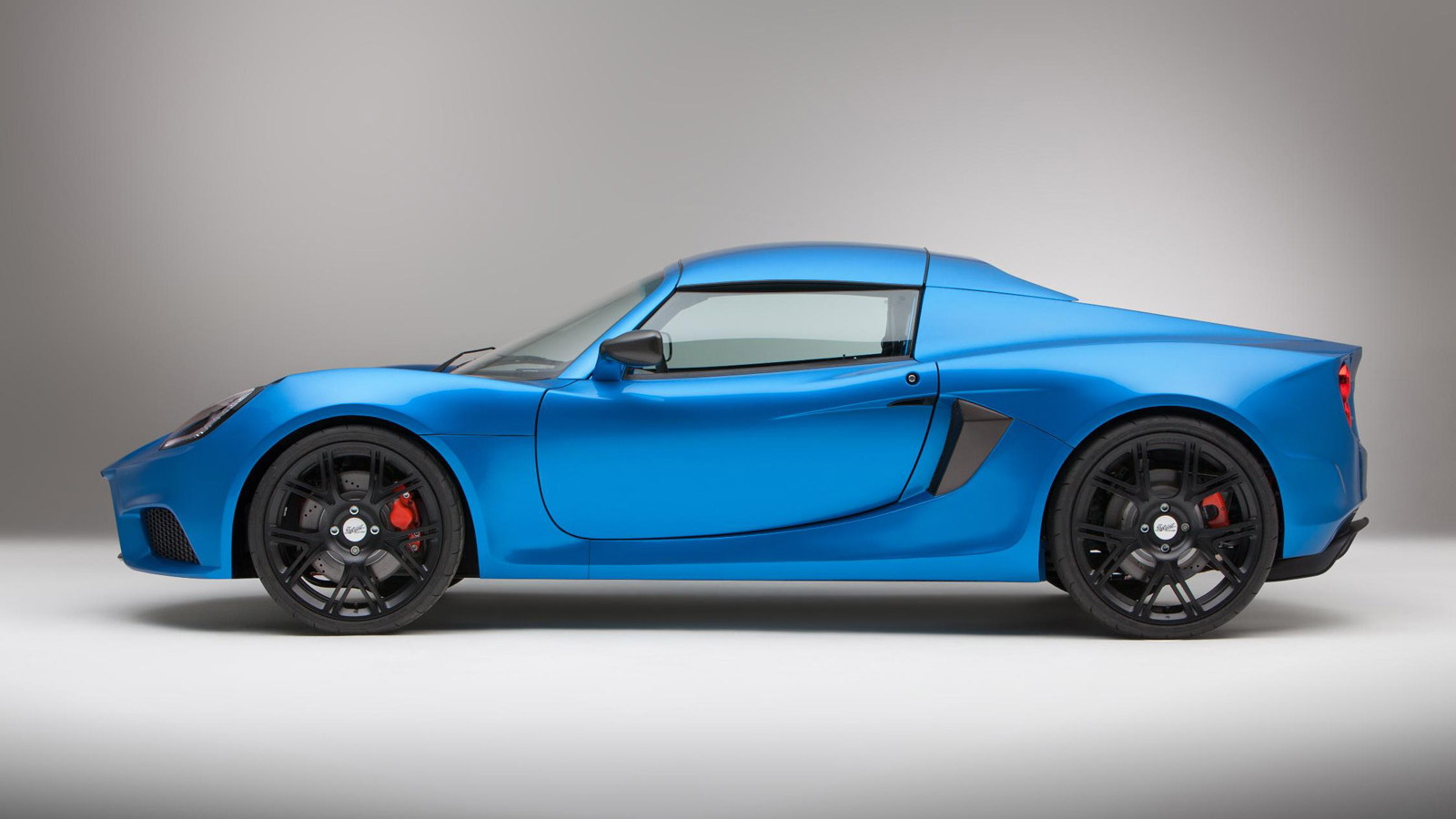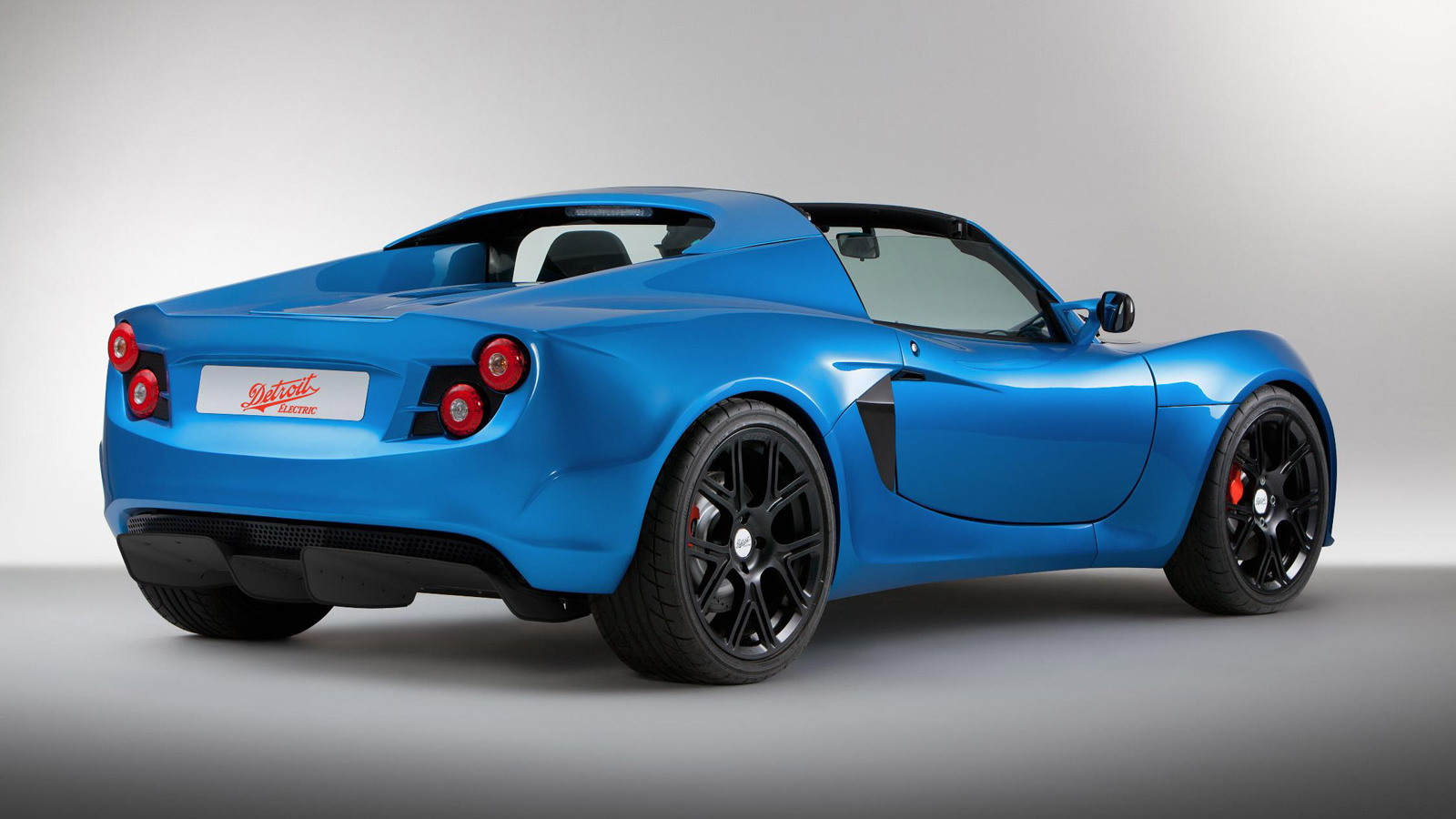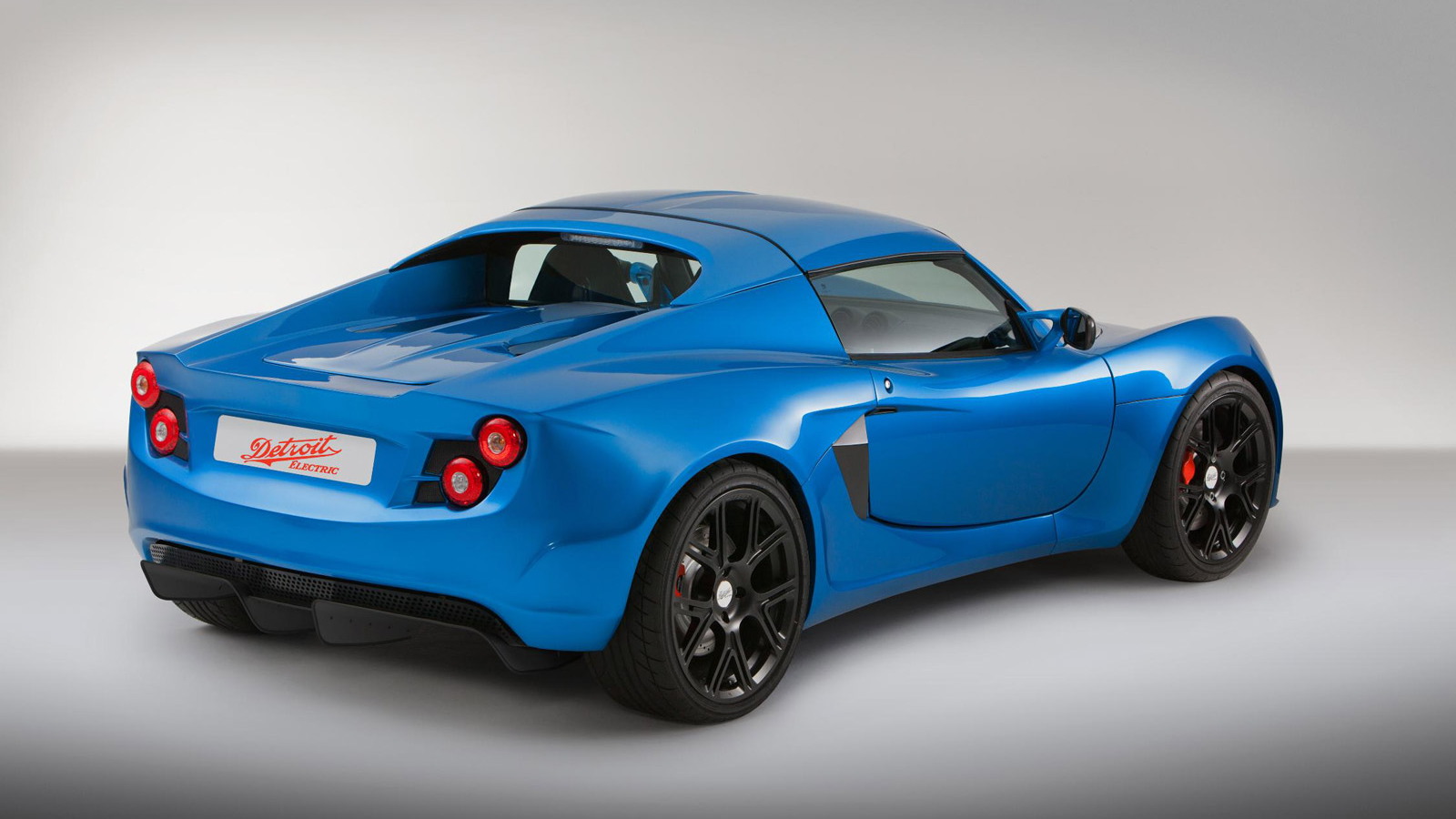This is not, it has to be said, an original idea. The Tesla Roadster of a few years past also used a Lotus Elise chassis, albeit with carbon-fiber bodywork and a unique redesign. The PG Elektrus was similar. As was the Nemesis. And several others besides.
There's a good reason for it of course--the Elise's aluminum chassis provides electric automakers with a light, strong, adaptable platform. But what separates Detroit Electric's version from the rest?
It's certainly as fast as the rest--0-62 mph takes only 3.7 seconds, and it'll reach 155 mph with a long enough straight.
That's partly down to its light-weight bodywork--carbon fiber, like several of the others--and partly to a 150 kW (201 horsepower) electric motor, developing 166 pounds-feet of torque in the usual low-down manner.
Unusually, Detroit Electric says the SP:01 features four gear ratios, making it one of a small band of electric cars to use a manual transmission. The company does say that gearshifts won't be frequent however, owing to the motor's strong torque.
37 kWh of battery capacity supplies the car with nearly 190 miles of range, though this figure was attained in European testing--so expect the EPA figures to be lower. A full charge using the company's home charging unit takes 4.3 hours.
The SP:01's technology is newer than its looks suggest. In addition to what Detroit Electric calls a 'SAMI'--Smartphone Application Managed Infotainment system--the car also features bi-directional charging and discharging. What this means is that the cool blue sports car can be used much like the Mitsubishi i-MiEV House: supplying power back-up for your home. If it's plugged-in during an outage the car will contact you via SAMI and the GSM network and let you send power the other way, keeping your home on-line.
The price of all this performance and technology is $135,000--more expensive than the Roadster was--with a three-year, 30,000-mile warranty. Buyers can also opt for a five-year, 50,000-mile extension for the battery warranty.
Old name, revived
Its place of birth makes the SP:01 special too. You might have heard the name Detroit Electric used in context with vintage electric vehicles (such as this 1914 example) and as the name suggests, the company is based in Motor City itself, at the Fisher Building in downtown Detroit.
The actual car is to be produced in Wayne County, Michigan, and only 999 examples will be built--before being shipped to buyers worldwide.
The Michigan site actually has capacity for 2,500 vehicles a year, so if the SP:01 is successful it shouldn't be the last vehicle emerging from the factory's gates. With added emphasis on the "if"--Detroit Electric in its current guise is still a startup, and as such carries all the associated risks.
We've been here before, as evidence of those difficulties--including Detroit Electric's $25,000 electric sedan project in 2009 that never got off the ground, and a seemingly forgotten deal with Chinese automaker Dongfeng.
The company expects to create 180 manufacturing and sales-related jobs over the next year. IIf all goes well, production is set to begin August 2013.
+++++++++++
